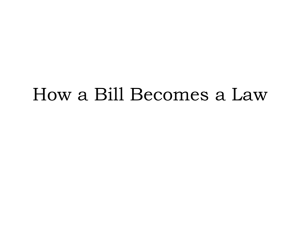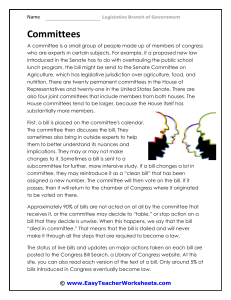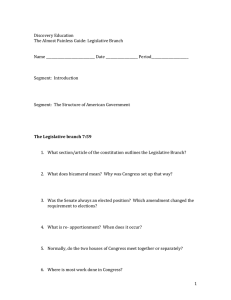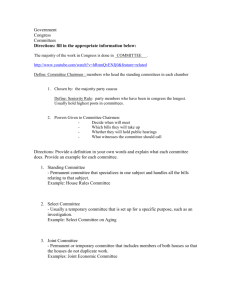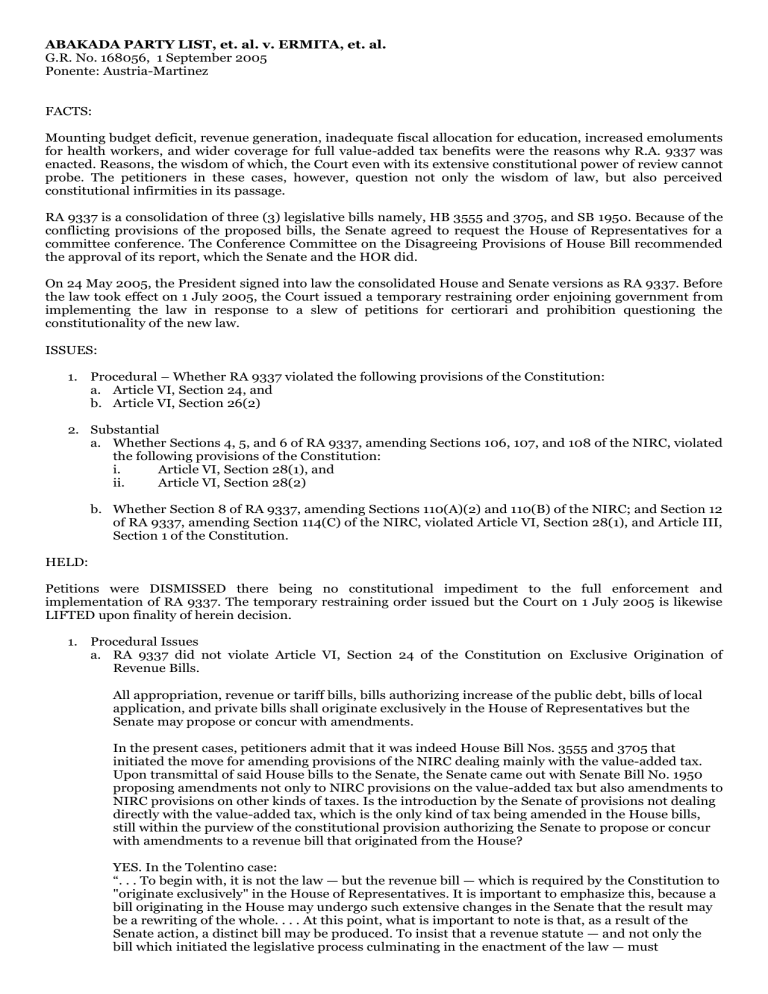
ABAKADA PARTY LIST, et. al. v. ERMITA, et. al. G.R. No. 168056, 1 September 2005 Ponente: Austria-Martinez FACTS: Mounting budget deficit, revenue generation, inadequate fiscal allocation for education, increased emoluments for health workers, and wider coverage for full value-added tax benefits were the reasons why R.A. 9337 was enacted. Reasons, the wisdom of which, the Court even with its extensive constitutional power of review cannot probe. The petitioners in these cases, however, question not only the wisdom of law, but also perceived constitutional infirmities in its passage. RA 9337 is a consolidation of three (3) legislative bills namely, HB 3555 and 3705, and SB 1950. Because of the conflicting provisions of the proposed bills, the Senate agreed to request the House of Representatives for a committee conference. The Conference Committee on the Disagreeing Provisions of House Bill recommended the approval of its report, which the Senate and the HOR did. On 24 May 2005, the President signed into law the consolidated House and Senate versions as RA 9337. Before the law took effect on 1 July 2005, the Court issued a temporary restraining order enjoining government from implementing the law in response to a slew of petitions for certiorari and prohibition questioning the constitutionality of the new law. ISSUES: 1. Procedural – Whether RA 9337 violated the following provisions of the Constitution: a. Article VI, Section 24, and b. Article VI, Section 26(2) 2. Substantial a. Whether Sections 4, 5, and 6 of RA 9337, amending Sections 106, 107, and 108 of the NIRC, violated the following provisions of the Constitution: i. Article VI, Section 28(1), and ii. Article VI, Section 28(2) b. Whether Section 8 of RA 9337, amending Sections 110(A)(2) and 110(B) of the NIRC; and Section 12 of RA 9337, amending Section 114(C) of the NIRC, violated Article VI, Section 28(1), and Article III, Section 1 of the Constitution. HELD: Petitions were DISMISSED there being no constitutional impediment to the full enforcement and implementation of RA 9337. The temporary restraining order issued but the Court on 1 July 2005 is likewise LIFTED upon finality of herein decision. 1. Procedural Issues a. RA 9337 did not violate Article VI, Section 24 of the Constitution on Exclusive Origination of Revenue Bills. All appropriation, revenue or tariff bills, bills authorizing increase of the public debt, bills of local application, and private bills shall originate exclusively in the House of Representatives but the Senate may propose or concur with amendments. In the present cases, petitioners admit that it was indeed House Bill Nos. 3555 and 3705 that initiated the move for amending provisions of the NIRC dealing mainly with the value-added tax. Upon transmittal of said House bills to the Senate, the Senate came out with Senate Bill No. 1950 proposing amendments not only to NIRC provisions on the value-added tax but also amendments to NIRC provisions on other kinds of taxes. Is the introduction by the Senate of provisions not dealing directly with the value-added tax, which is the only kind of tax being amended in the House bills, still within the purview of the constitutional provision authorizing the Senate to propose or concur with amendments to a revenue bill that originated from the House? YES. In the Tolentino case: ―. . . To begin with, it is not the law — but the revenue bill — which is required by the Constitution to "originate exclusively" in the House of Representatives. It is important to emphasize this, because a bill originating in the House may undergo such extensive changes in the Senate that the result may be a rewriting of the whole. . . . At this point, what is important to note is that, as a result of the Senate action, a distinct bill may be produced. To insist that a revenue statute — and not only the bill which initiated the legislative process culminating in the enactment of the law — must substantially be the same as the House bill would be to deny the Senate's power not only to "concur with amendments" but also to "propose amendments." It would be to violate the coequality of legislative power of the two houses of Congress and in fact make the House superior to the Senate.‖ Indeed, what the Constitution simply means is that the initiative for filing revenue, tariff or tax bills, bills authorizing an increase of the public debt, private bills and bills of local application must come from the House of Representatives on the theory that, elected as they are from the districts, the members of the House can be expected to be more sensitive to the local needs and problems. On the other hand, the senators, who are elected at large, are expected to approach the same problems from the national perspective. Both views are thereby made to bear on the enactment of such laws. b. RA 9337 did not violate Article VI, Section 26(2) of the Constitution on the ―No Amendment Rule.‖ Article VI, Sec. 26 (2) of the Constitution, states: No bill passed by either House shall become a law unless it has passed three readings on separate days, and printed copies thereof in its final form have been distributed to its Members three days before its passage, except when the President certifies to the necessity of its immediate enactment to meet a public calamity or emergency. Upon the last reading of a bill, no amendment thereto shall be allowed, and the vote thereon shall be taken immediately thereafter, and the yeas and nays entered in the Journal. There is no reason for requiring that the Committee's Report in these cases must have undergone three readings in each of the two houses. If that be the case, there would be no end to negotiation since each house may seek modification of the compromise bill. . . . EXTENT OF ―NO AMENDMENT RULE‖ The ―No Amendment Rule‖ must be construed as referring only to bills introduced for the first time in either house of Congress, not to the conference committee report. 2. Substantial Issues a. Uniformity and Equitability of Taxation The rule of taxation shall be uniform and equitable. The Congress shall evolve a progressive system of taxation. Uniformity in taxation means that all taxable articles or kinds of property of the same class shall be taxed at the same rate. Different articles may be taxed at different amounts provided that the rate is uniform on the same class everywhere with all people at all times. In this case, the tax law is uniform as it provides a standard rate of 0% or 10% (or 12%) on all goods and services. Sections 4, 5 and 6 of R.A. No. 9337, amending Sections 106, 107 and 108, respectively, of the NIRC, provide for a rate of 10% (or 12%) on sale of goods and properties, importation of goods, and sale of services and use or lease of properties. These same sections also provide for a 0% rate on certain sales and transaction. Neither does the law make any distinction as to the type of industry or trade that will bear the 70% limitation on the creditable input tax, 5-year amortization of input tax paid on purchase of capital goods or the 5% final withholding tax by the government. It must be stressed that the rule of uniform taxation does not deprive Congress of the power to classify subjects of taxation, and only demands uniformity within the particular class. R.A. No. 9337 is also equitable. The law is equipped with a threshold margin. The VAT rate of 0% or 10% (or 12%) does not apply to sales of goods or services with gross annual sales or receipts not exceeding P1,500,000.00. Also, basic marine and agricultural food products in their original state are still not subject to the tax, thus ensuring that prices at the grassroots level will remain accessible. R.A. No. 9337 puts a premium on businesses with low profit margins, and unduly favors those with high profit margins. Congress was not oblivious to this. Thus, to equalize the weighty burden the law entails, the law imposed a 3% percentage tax on VAT-exempt persons under Section 109(v), i.e., transactions with gross annual sales and/or receipts not exceeding P1.5 Million. This acts as a equalizer because in effect, bigger businesses that qualify for VAT coverage and VAT-exempt taxpayers stand on equal-footing. Moreover, Congress provided mitigating measures to cushion the impact of the imposition of the tax on those previously exempt. Excise taxes on petroleum products and natural gas were reduced. Percentage tax on domestic carriers was removed. Power producers are now exempt from paying franchise tax. Aside from these, Congress also increased the income tax rates of corporations, in order to distribute the burden of taxation. Domestic, foreign, and non-resident corporations are now subject to a 35% income tax rate, from a previous 32%. Intercorporate dividends of non-resident foreign corporations are still subject to 15% final withholding tax but the tax credit allowed on the corporation's domicile was increased to 20%. The Philippine Amusement and Gaming Corporation (PAGCOR) is not exempt from income taxes anymore. Even the sale by an artist of his works or services performed for the production of such works was not spared. All these were designed to ease, as well as spread out, the burden of taxation, which would otherwise rest largely on the consumers. b. No Undue Delegation of Legislative Power In the present case, the challenged section of R.A. No. 9337 is the common proviso in Sections 4, 5 and 6 which reads as follows: That the President, upon the recommendation of the Secretary of Finance, shall, effective January 1, 2006, raise the rate of value-added tax to twelve percent (12%), after any of the following conditions has been satisfied: xxx The case is not a delegation of legislative power. It is simply a delegation of ascertainment of facts upon which enforcement and administration of the increase rate under the law is contingent. The legislature has made the operation of the 12% rate effective January 1, 2006, contingent upon a specified fact or condition. It leaves the entire operation or non-operation of the 12% rate upon factual matters outside of the control of the executive. No discretion would be exercised by the President. Highlighting the absence of discretion is the fact that the word shall is used in the common proviso. The use of the word shall connotes a mandatory order. Its use in a statute denotes an imperative obligation and is inconsistent with the idea of discretion. SECRETARY OF FINANCE AS AGENT OF LEGISLATURE; PRESIDENT’S POWER OF CONTROL NOT APPLICABLE In the present case, in making his recommendation to the President on the existence of either of the two conditions, the Secretary of Finance is not acting as the alter ego of the President or even her subordinate. In such instance, he is not subject to the power of control and direction of the President. He is acting as the agent of the legislative department, to determine and declare the event upon which its expressed will is to take effect. The Secretary of Finance becomes the means or tool by which legislative policy is determined and implemented, considering that he possesses all the facilities to gather data and information and has a much broader perspective to properly evaluate them. His function is to gather and collate statistical data and other pertinent information and verify if any of the two conditions laid out by Congress is present. His personality in such instance is in reality but a projection of that of Congress. Thus, being the agent of Congress and not of the President, the President cannot alter or modify or nullify, or set aside the findings of the Secretary of Finance and to substitute the judgment of the former for that of the latter. NO VIOLATION OF PRINCIPLE OF REPUBLICANISM As to the argument of petitioners that delegating to the President the legislative power to tax is contrary to the principle of republicanism, the same deserves scant consideration. Congress did not delegate the power to tax but the mere implementation of the law. The intent and will to increase the VAT rate to 12% came from Congress and the task of the President is to simply execute the legislative policy. That Congress chose to do so in such a manner is not within the province of the Court to inquire into, its task being to interpret the law. c. Due Process and Equal Protection Clauses NO DEPRIVATION OF PROPERTY WITHOUT DUE PROCESS Petitioners argue that the input tax partakes the nature of a property that may not be confiscated, appropriated, or limited without due process of law. The input tax is not a property or a property right within the constitutional purview of the due process clause. A VAT-registered person's entitlement to the creditable input tax is a mere statutory privilege. The distinction between statutory privileges and vested rights must be borne in mind for persons have no vested rights in statutory privileges. The state may change or take away rights, which were created by the law of the state, although it may not take away property, which was vested by virtue of such rights. EQUAL PROTECTION CLAUSE The equal protection clause under the Constitution means that "no person or class of persons shall be deprived of the same protection of laws which is enjoyed by other persons or other classes in the same place and in like circumstances.‖ The power of the State to make reasonable and natural classifications for the purposes of taxation has long been established. Whether it relates to the subject of taxation, the kind of property, the rates to be levied, or the amounts to be raised, the methods of assessment, valuation and collection, the State's power is entitled to presumption of validity. As a rule, the judiciary will not interfere with such power absent a clear showing of unreasonableness, discrimination, or arbitrariness. The equal protection clause does not require the universal application of the laws on all persons or things without distinction. This might in fact sometimes result in unequal protection. What the clause requires is equality among equals as determined according to a valid classification. By classification is meant the grouping of persons or things similar to each other in certain particulars and different from all others in these same particulars. d. Progressivity of Taxation Progressive taxation is built on the principle of the taxpayer's ability to pay. Taxation is progressive when its rate goes up depending on the resources of the person affected. The VAT is an antithesis of progressive taxation. By its very nature, it is regressive. The principle of progressive taxation has no relation with the VAT system inasmuch as the VAT paid by the consumer or business for every goods bought or services enjoyed is the same regardless of income. In other words, the VAT paid eats the same portion of an income, whether big or small. The disparity lies in the income earned by a person or profit margin marked by a business, such that the higher the income or profit margin, the smaller the portion of the income or profit that is eaten by VAT. A converso, the lower the income or profit margin, the bigger the part that the VAT eats away. At the end of the day, it is really the lower income group or businesses with low-profit margins that is always hardest hit. Nevertheless, the Constitution does not really prohibit the imposition of indirect taxes, like the VAT. What it simply provides is that Congress shall "evolve a progressive system of taxation." Resort to indirect taxes should be minimized but not avoided entirely because it is difficult, if not impossible, to avoid them by imposing such taxes according to the taxpayers' ability to pay. In the case of the VAT, the law minimizes the regressive effects of this imposition by providing for zero rating of certain transactions (R.A. No. 7716, §3, amending §102 (b) of the NIRC), while granting exemptions to other transactions. (R.A. No. 7716, §4 amending §103 of the NIRC).
